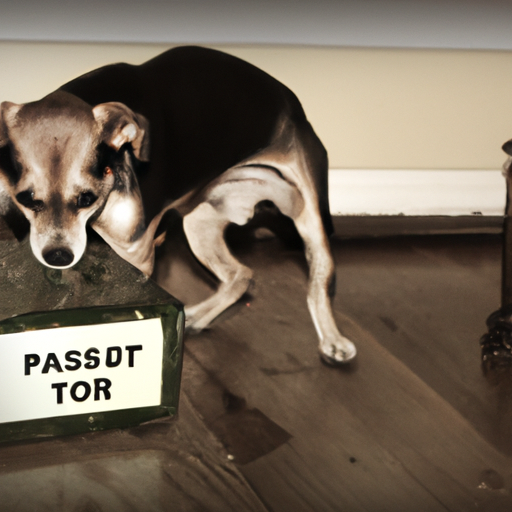Understanding Rat Poison
Rat poison, also known as rodenticide, is a lethal substance meant to exterminate pests like mice and rats. However, this powerful poison isn’t exclusive to its intended victims. If your dog gets a hold of it, the consequences can be devastating. Your canine companion’s health and life could be at serious risk.
There are different types of rat poison, each with its own potential impacts on your dog’s health. These include anticoagulants, cholecalciferol, bromethalin, and phosphides. Each of these ingredients can harm dogs in different ways, affecting various bodily systems.
| Type of Poison | How it Affects Dogs |
|---|---|
| Anticoagulants | Causes internal bleeding |
| Cholecalciferol | Increases calcium levels, damaging kidneys |
| Bromethalin | Causes brain swelling |
| Phosphides | Produces toxic gas in the stomach |
Symptoms of Rat Poisoning in Dogs
Identifying the symptoms of rat poison in dogs is crucial for their survival. The symptoms may vary due to the type of rat poison ingested. However, some common signs to look out for are:
- Lethargy or weakness
- Difficulty breathing
- Pale gums
- Blood in the stool or urine
- Nosebleeds or bleeding from the gums
If you notice any of these signs, it’s absolutely necessary to take your dog to the veterinarian immediately.
The Impact of Rat Poison on Your Dog’s Health
Rat poison can wreak havoc on your dog’s health. The severity of the effect largely depends on the amount of poison ingested, the type of poison, and the time elapsed since ingestion.
- Anticoagulants: These substances diminish the body’s ability to clot blood, leading to internal bleeding. This bleeding can occur anywhere in the body, causing a variety of symptoms.
- Cholecalciferol: This poison leads to elevated levels of calcium and phosphorus in your dog’s body, resulting in kidney failure if left untreated.
- Bromethalin: This neurotoxin causes swelling of the brain, leading to neurological signs like seizures.
- Phosphides: When these come in contact with stomach acid, they produce a toxic gas that can damage the liver and heart.
Treatment Options for Dogs Exposed to Rat Poison
When it comes to rat poison, time is of the essence. If you suspect your dog has ingested rat poison, immediately contact your local veterinarian or the Pet Poison Helpline. Treatment can vary depending on the type of poison ingested, but may include:
- Inducing vomiting
- Activated charcoal
- Vitamin K1 for anticoagulant poisoning
- Intravenous fluids for cholecalciferol poisoning
- Medication to reduce brain swelling for bromethalin poisoning
Preventing Rat Poison Exposure in Dogs
To keep your dogs safe, it’s best to avoid using rat poison in your home or yard. However, if you must use it, ensure it’s placed in areas inaccessible to your dogs. Regularly check these areas for displaced poison. Also, consider using safer alternatives like traps or professional pest control services.
Frequently Asked Questions
Q: How long after eating rat poison will a dog show symptoms?
A: Symptoms usually appear within 2-3 days, but can occur sooner with some types of poison.
Q: Can a dog survive after eating rat poison?
A: Yes, especially if treatment is given quickly. However, survival depends on the amount and type of poison ingested.
Q: Is there a home remedy for a dog who has eaten rat poison?
A: No, if you suspect your dog has ingested rat poison, seek professional help immediately.
Remember, the safety and well-being of your furry friend should always be a priority. By being vigilant and proactive, you can protect your dog from the dangers of rat poison.



